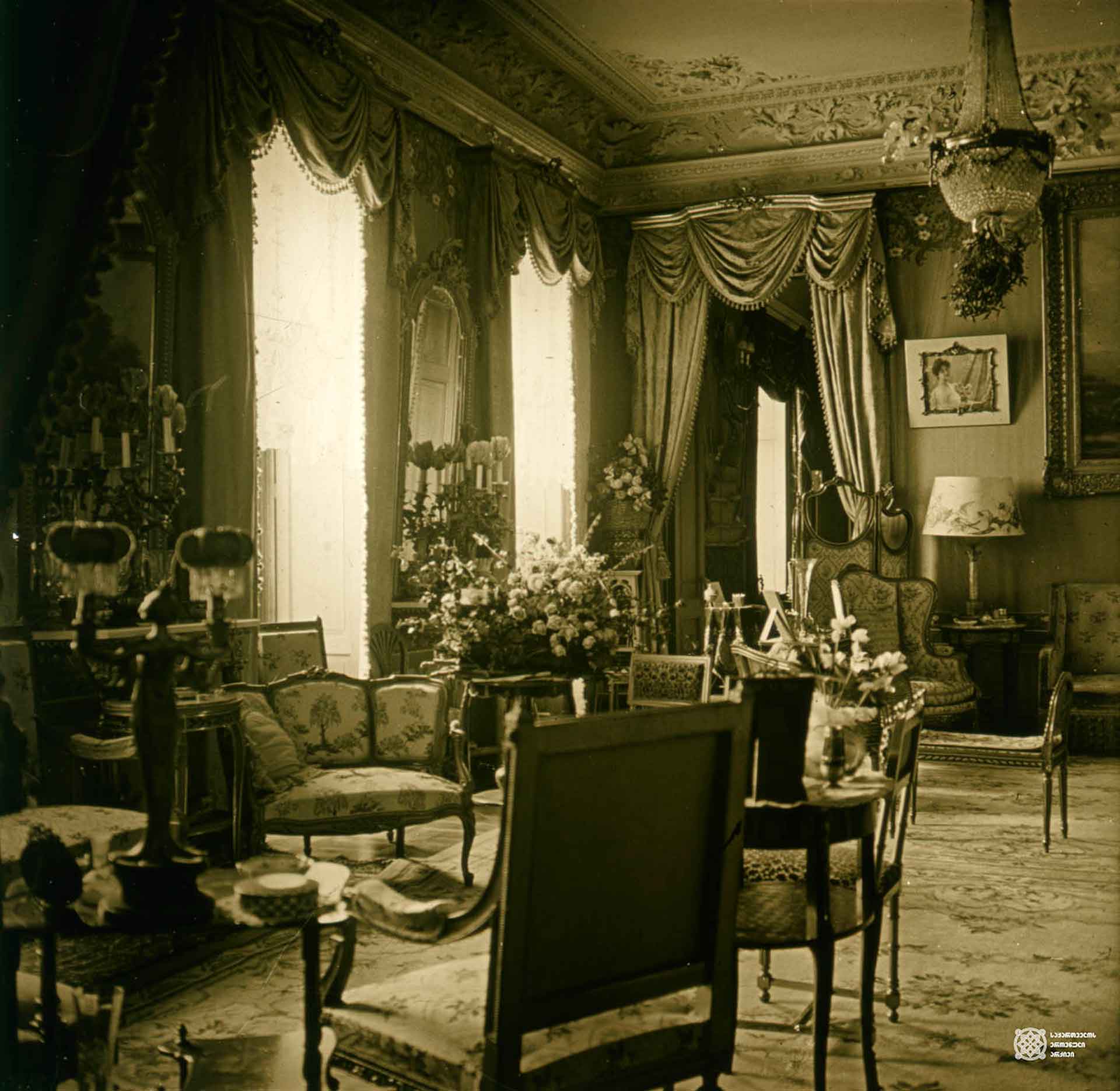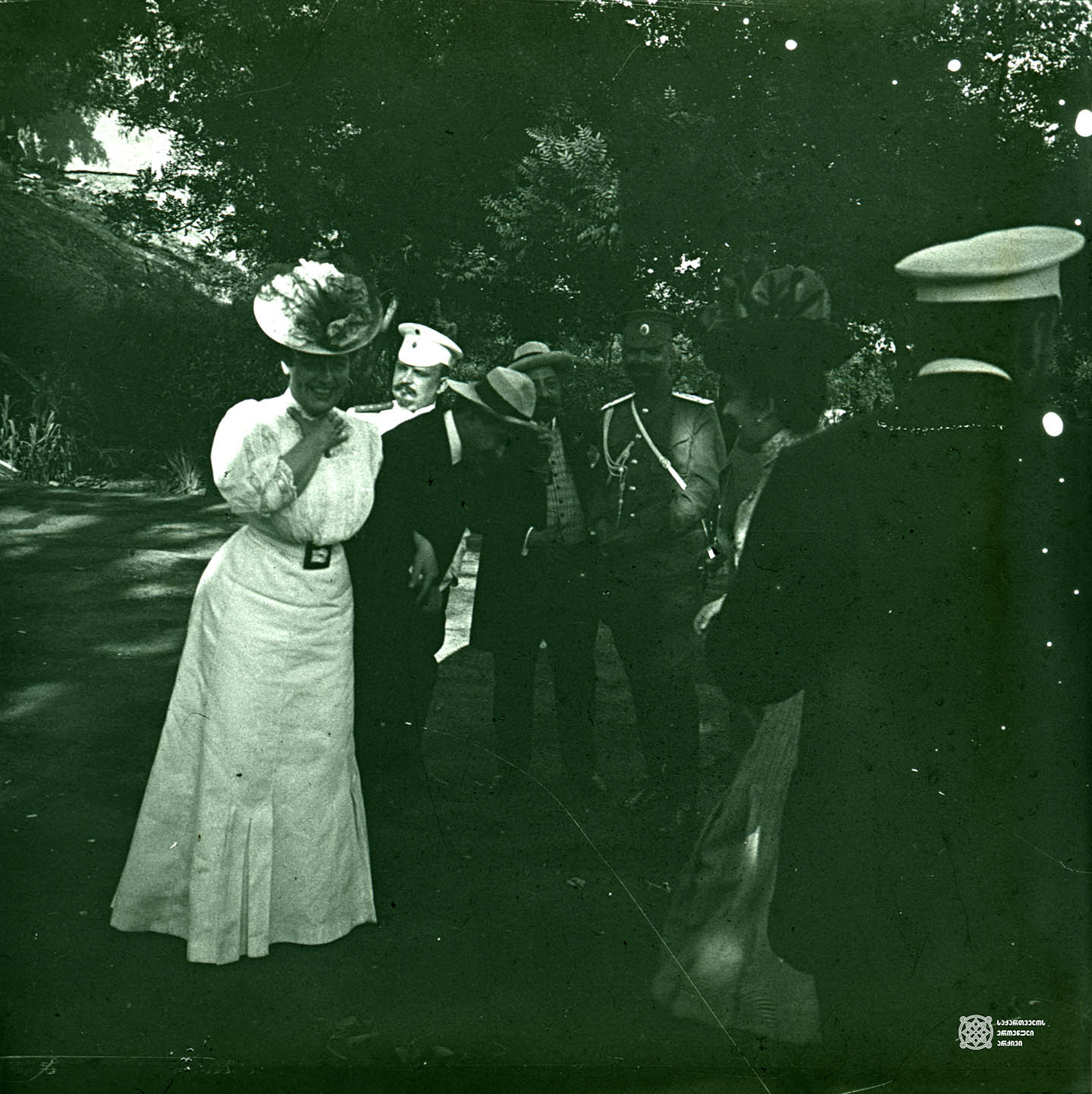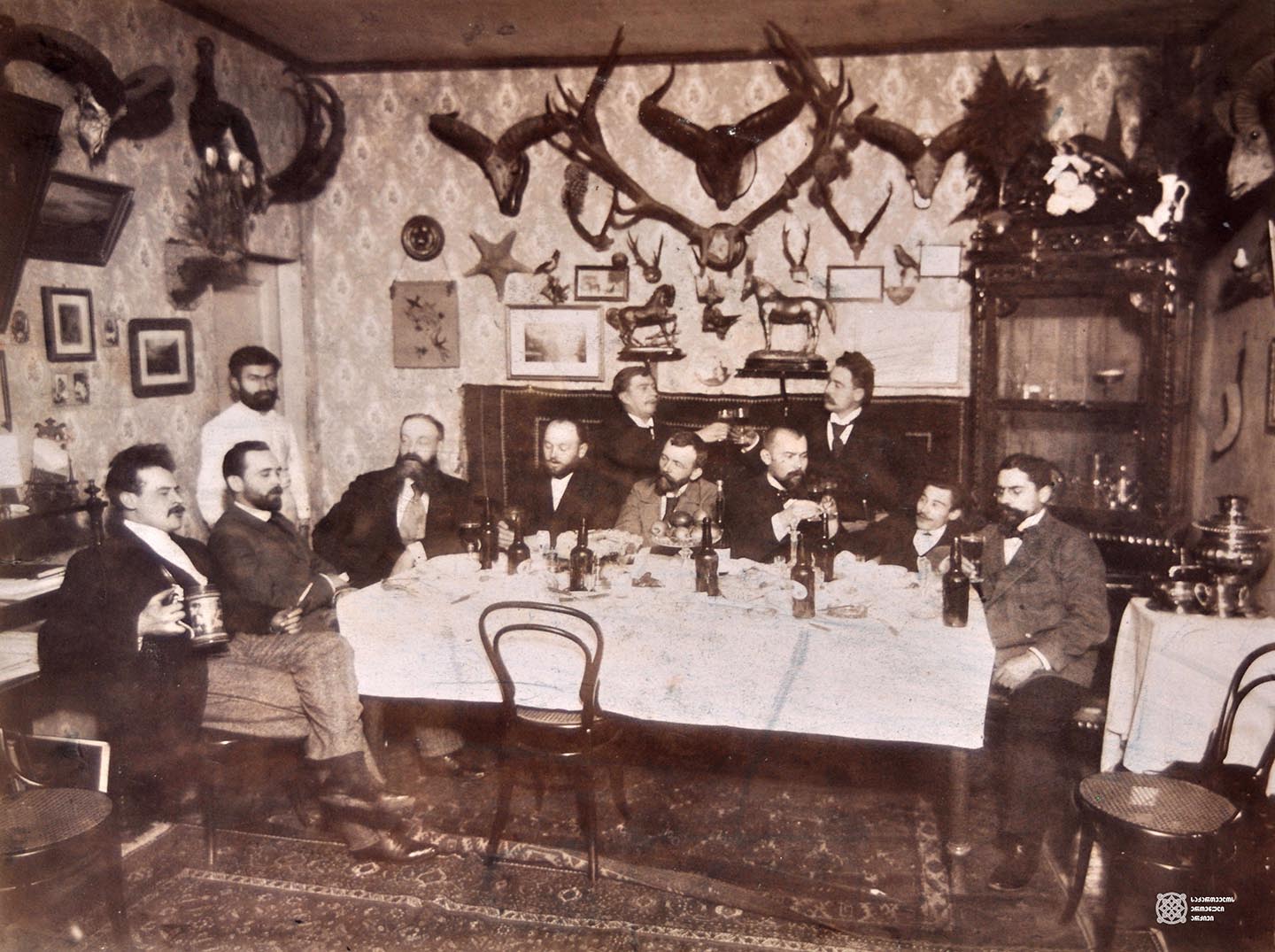
Feel free to add tags, names, dates or anything you are looking for
a.jpg)
a.jpg)
With the advent of New Year’s Eve, just at the close of day, doors would come ajar all over Tbilisi. Word had it that the good old breeze—that spirit, that pleasant sensation, that brisk, ethereal waft of luck would appear at dusk and glide gently door to door, into each household. Needless to say, it had no time to waste hanging around the threshold, trying to cut through. And that is why nobody would even dare to shut the door—in both biting cold and all through much balmier winter nights. Consequently, that skittish wind of luck, or whatever it was that it imparted, would eagerly whip up Tbilisian wick lights, ablaze in the distant depth of each gaping dwelling across the city.
At that point, ladies had long been over and done with grand bazaar shopping and picking up sweetmeat. They had finished off baking, cooking and garnishing the main course, and had even managed to lay out confectionery—fresh and dried fruits, apples and prunes, Gozinaki, sugar candy, and sweet Nazuki [1], with freshly baked homemade bread, referred to as Basila, stationed befittingly at the very center, with a humanlike baked figure emerging from its core. On the first day of New Year, the Church commemorates Saint Basil—hence the bread-baking in his name. Ladies would also take extra time to set out twigs from walnut trees or willows over a firewood storage on the balcony or near the door with particular love and care. Each member of the household would get to grab a twig and throw it into the open-hearth fire: this was a way of bidding farewell to the old year and strengthening the family bond.
It would get pitch black out, and, back then, with relative shortage of clocks and watches, there would always be a restless person or two who would end up getting an early start on the New Year festivities.
a.jpg)
First Christmas tree. Geronti Kikodze Street, formerly known as Paskevich Street
Celebratory gunfire used to be extremely popular in Tbilisi on New Year’s Eve. Hence, the police would have plenty to do—everyone had a chance to shoot at least once, but some would keep shooting until dawn. Those looking forward to greeting the New Year never slept anyway, but with all this bangarang around town, they would not have been able to, even if they tried.
As soon as the first shots were fired, celebration of the advent of New Year would commence. That is when everyone would finally light up all the holiday candles, which they had moulded at home for this very purpose and get the sweet tooth ready: one of the members of each household would walk out the open door to come back as mekvle [2]. First-foots were believed to usher angels into people’s homes through a set of customary steps: first, they would grab the confectionery board and carry it all over the residence, pausing for a minute or two in each corner, so that the delightful force of sweetmeats could permeate every wall and last all through the year. Kids simply could not wait for the ritual to be over, as that would usually mean having the confectionery board return to the open-hearth fire, ready to be devoured.

Dining room on Geronti Kikodze Street
With the outdoor noise dying down somehow, everyone would doze off—that night was never really about heavy drinking, but rather an embrace of luck and delight that the New Year brings—with each breath of the new dawn.
The toing and froing would begin early in the morning. Streets were always filled with keen pedestrians, as every shop, every tavern was typically open on the first day of January, capitalizing on excessive appetite for fruit and candy, among other sweets. Apples stuffed with silver coins where a typical gift of artisans: street water vendors, tulukhchi, would hand you an apple for a chance to stick a coin or two in; master craftsmen would visit their chiefs, bearing gifts… and so much more!

Garden of Eden (present-day Zoo)
January 1st was also the day of frequent visits. People were keen on hosting and guesting and customary exchange of confectionery. But nobody would stay for too long: they would normally chug a glass, give blessings, and chat just for a little while before bidding farewell. They could not have possibly stayed longer—after all, someone would definitely stop by their place at some point as well. All that was mostly about exchange of confectionery, coming to an end roughly around sundown.

Hunters’ feast. Early 20th century
Good performance and productivity would generally mean heavy drinking: merely a glass of wine or a single shot of vodka per stop would prove to be enough to get one inebriated by the time they returned home, albeit with a load of candy up their sleeves. And the hiccups of insobriety that night were negligible, once weighed against newfangled hope and the sweet taste of candy.
Literary translation by Mziko Lapiashvili
[1] Spiced sweet flatbread with raisins and egg glaze, customary to Shida Kartli (eastern Georgia)
[2] Georgian for “first-foot” (from kvali – ‘footstep’, ‘footprint’)